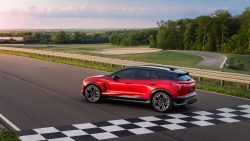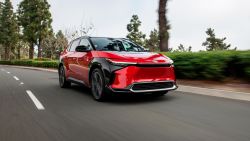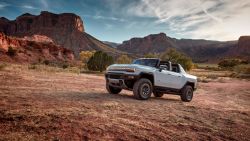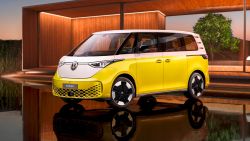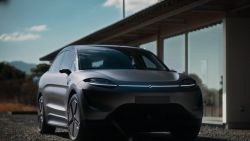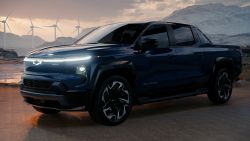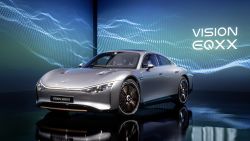Tesla is having a brutal year. But the company’s missed sales forecasts and weakening demand shouldn’t scare investors away from the electric vehicle business.
In fact, the EV industry as a whole is booming. Several major auto companies and tech giants are working on new electric and self-driving cars and trucks — which means there are plenty of companies not named Tesla (TSLA) that investors can buy into for the long haul.
While Tesla is the best-known maker of electric and driverless cars, nearly all of the world’s major auto manufacturers in Detroit, Europe and Japan are ramping up efforts to build their own autonomous cars as well as plug-in vehicles.
To that end, Wedbush analyst Dan Ives, who has a neutral rating on Tesla, said in a recent report that Tesla has to do a better job of shoring up demand for the Model 3 in the United States and Europe in order to return to profitability anytime soon.
Automakers aren’t the only companies with exposure to the business, either. Apple (AAPL), Microsoft (MSFT) and Google owner Alphabet (GOOGL), which owns self-driving car company Waymo, and Baidu (BIDU) are all developing software and hardware for autonomous cars.
And several leading semiconductor firms, including Qualcomm (QCOM) and Nvidia (NVDA), are developing cameras, sensors and other tech that will be the brains and guts of electric and self-driving cars.
Big tech companies may be a better bet than Tesla
By buying the tech companies that are partnering with many of the automotive makers, investors could have broader exposure to the overall industry. That may be a safer bet than trying to figure out if Tesla’s Model 3 will outsell cars like the Nissan Leaf, Chevy Bolt and VW’s e-Golf.
So if Tesla isn’t the best way to bet on the electric and autonomous vehicle trend, what is?
Nvidia and Alphabet may give Tesla stiff competition when it comes to developing hardware and software for driverless and electric cars, Cowen analyst Jeffrey Osborne said in a report last month. Those companies not only have the upper hand when it comes to research and development; they also have a more diverse base of customers.
Osborne cited newly public Uber (UBER) and Lyft (LYFT) as emerging competitors in this space as well. He has the lowest price target for Tesla on Wall Street — just $150 a share, nearly 35% below Tesla’s current price.
Pierre Ferragu, an analyst with New Street Research, is bullish on Tesla. But he also touted Uber on the most recent episode of “Markets Now” on CNNBusiness.
Ferragu has also praised Infineon (IFNNF), a radar chip maker, and ON Semiconductor (ON), an image sensor manufacturer — two semiconductor companies with exposure to the automotive market.
ETF exposure
There are also a few exchange-traded funds that own the biggest players in the market. That might be safer than buying just a handful of individual stocks.
While these ETFs all invest in Tesla, Elon Musk’s electric car company is nowhere close to being their biggest holding
Investing firm Global X, for example, has an Autonomous & Electric Vehicles ETF (DRIV) that owns 78 stocks and has risen nearly 15% this year, slightly outperforming the broader S&P 500. Tesla is its 27th largest holding, accounting for less than 2% of the fund’s assets.
KraneShares, meanwhile, has an Electric Vehicles and Future Mobility Index ETF (KARS) that has gained 15% in 2019. Tesla is the seventh-biggest investment in that fund.
And iShares just launched its Self-Driving EV and Tech ETF (IDRV) in April. Tesla is the 16th-biggest weighting in this fund.
So any investor who thinks that self-driving and electric cars are the way of the future might be better off hitching their wagon to these broader ETFs, rather than Tesla.
As that company has continuously fallen short of its lofty goals, its stock has also plunged more than 30% this year. But Tesla’s woes aren’t a long-term negative for the still-nascent market for electric and autonomous cars.




